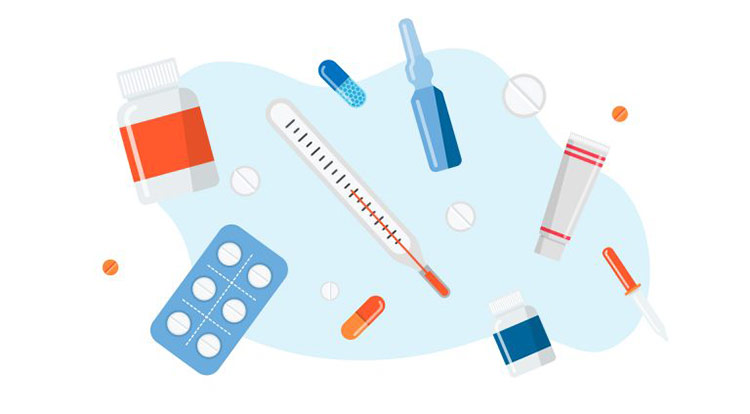Contracting a sexually transmitted disease is certainly no one’s idea of a good time. Though untreated STDs can linger and cause lasting side effects (even when symptoms are not present), most STDs can be cured fairly easily when identified and treated early on. In most cases, curable STDs can be knocked out in a few days or a couple of weeks at most. And even incurable STDs can be treated and managed thanks to breakthrough advances in medicine. It’s always best to practice safe sex and be open and honest with your sexual partners in order to minimize your risk of infection. But if you do contract an STD, just know it’s not the end of the world.
Curable STDs
The good news is that most sexually transmitted diseases are 100% curable if caught early enough. In fact, many are curable by way of nothing more than a single-dose prescription antibiotic regimen. But remember, the mere absence of symptoms does not always mean you’re STD free. If you’ve recently engaged in sexual activity with an infected partner, it is in your best interest to find a reputable provider of STD testing and get tested immediately. The sooner you can begin treatment, the easier it will be to rid your body of the STD. And remember, there is no “STD immunity”. Even if you’ve contracted and subsequently been cured of a sexually transmitted disease, your body is just as prone to contracting it again in the future.
Now let’s have a look at some of the more common curable STDs:.
Gonorrhea
Gonorrhea is easily curable when caught early. Your healthcare professional will likely prescribe an antibiotic treatment regimen and it’s important that you stick to it for the recommended duration even if symptoms have subsided. Typically, it takes a few days from the beginning of treatment until your body is free from the infection, though pelvic pain may take up to two weeks to dissipate. It is advised that you abstain from sex from the beginning of treatment until a week after its conclusion. For more information, visit our gonorrhea symptoms page.
Chlamydia
With the right antibiotic treatment regimen, chlamydia symptoms will subside after a few days and the infection will be gone entirely in as little as a week. As is the case with other STDs, you’ll want to abstain from sex during the course of your treatment and for at least a week after just to be safe. For more information, visit our chlamydia symptoms page.
Syphilis
When caught early enough, syphilis is easily curable by way of prescription antibiotics. As long as you follow your prescription exactly and for its recommended duration, early stage syphilis typically clears up in two to six weeks from the beginning of treatment. Remember, even if symptoms are no longer present, you’ll want to finish the treatment regimen exactly as it was prescribed. It is best to abstain from sexual activity during your treatment process. For more information, visit our syphilis symptoms page.
Trichomoniasis
Indeed, trichomoniasis is another infection that can be easily cured with the right prescription antibiotic regimen. Typically, it takes between 7 and 10 days to cure a trichomoniasis infection and it is advised that you abstain from sex during this period and until you and your partner have tested negative. For more information, visit our trichomoniasis symptoms page.
Incurable STDs
Unfortunately, there are a number of sexually transmitted diseases for which there is no known cure. These STDs are spread just as easily as curable infections and symptoms can vary greatly or be non-existent depending on the infection. Fortunately, every one of these diseases can be treated and/or prevented by way of a vaccination. And it is not at all uncommon for someone to live a long and happy life even after contracting an incurable STD.
Herpes
Unfortunately, once you contract herpes (HSV-1 or HSV-2), you carry it for life. However, prescription and over-the-counter medications are readily available to minimize the severity of sporadic outbreaks and to help you manage the infection. For more information, visit our herpes symptoms page.
Hepatitis B
Hepatitis B is another treatable but not curable STD. However, unlike herpes, the hepatitis B virus will go away on its own over time (although the antiviral medications help to ensure no lasting effects). The best way to prevent hepatitis B from ever becoming a concern in the first place is by taking a hepatitis B vaccine. Generally, this vaccine is administered to newborns within 24 hours of birth. For more information, visit our hepatitis B symptoms page.
HIV
While there is no cure for HIV, antiretroviral therapy (ART) has been proven to minimize the virus, its symptoms, and its risk of transmission. In some instances, ART can suppress the virus so much that it no longer appears in routine blood tests. And while ART and other advancements in medicine can allow an HIV+ person to live just as long as anyone else, the virus is still contagious and preventative measures regarding sexual activity are still strongly recommended. For more information, visit our HIV symptoms page.
Conclusion
As there is no known natural immunity to any of these sexually transmitted diseases, any sexually active individual is at risk. And while safe sex measures like condoms can reduce the risk of transmission, the truth is that no preventative measure apart from abstinence is 100 percent safe. And remember, the vast majority of curable and incurable STDs rarely display visible STD symptoms. For this reason, if you suspect you might have become infected–even if you feel completely fine–it is always a good idea to find a reliable provider of STD testing services and get tested. If you are positive, it’s better to know sooner than later so that your physician can get you on the right treatment regimen(s) right away. Curable STDs and incurable STDs are both manageable, but you have to act quickly.

